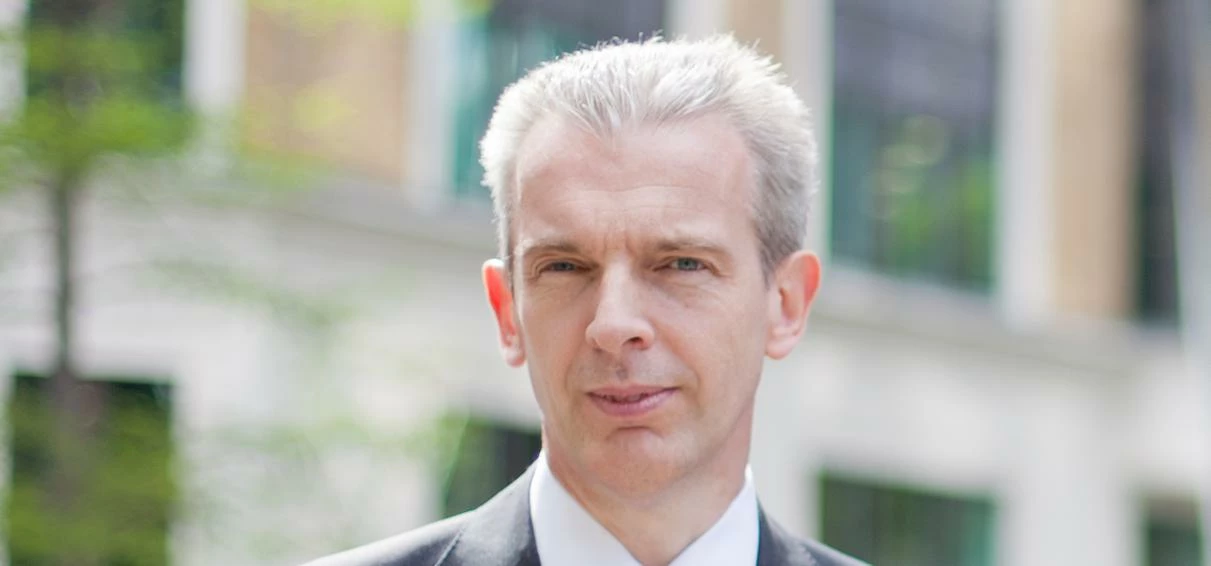
Partner Article
Time flies
With budget airliner EasyJet celebrating its 20th anniversary this year and anticipated to release another positive trading statement on Tuesday 6th October, CMC Markets Chief Market Analyst Michael Hewson looks at the history and future of the brand, as it seeks to continue profit growth and operating margins, all the while improving its public image.
Within this report Michael discusses: • The changing perception of the EasyJet brand over the past 20 years • The impact of their new business model and CEO Carolyn McCall • The future of the European airline sector
A few weeks ago, EasyJet launched a brand campaign celebrating its 20th birthday. Starting from modest beginnings, the airline has progressed to become an industry disruptor and one of the biggest budget airlines in Europe. Interestingly, the narrative of their advertising campaign is one of a love story, which is a rather sugar-coated example of the emergence of the budget airline business model of the last twenty years.
While there is no question that the emergence of budget airlines has been a boon for consumers over the last twenty years – making air travel much more affordable – the journey hasn’t been without its growing pains. Along with Ryanair, EasyJet has had its fair share of negative headlines over the last twenty years. It even gave birth to a new entry in the urban dictionary of slang terms in “Sleazyjet”, which referred to a cheap airline which crams people into a ridiculously small space like battery hens for just a few quid.
While EasyJet managed to avoid the more unappealing aspects of the growth of the budget airline sector (like charging passengers to go to the toilet), it has still had to contend with quite a number of negative headlines with respect to opaque charging policies, including taxes, fees and charges being added on top of the headline price. The business model has undoubtedly been a success with quick turnaround time. But in terms of passenger complaints, the budget airlines have also come top of the league, with late cancellations and missing bags coming top of passengers’ gripes as recently as 2010.
Since 2010, though, people’s views of EasyJet have certainly improved, and it can’t be a coincidence that this improvement in public perception developed soon after Carolyn McCall took over as CEO of the airline in March 2010. In a clear departure from the previous budget model, the new CEO appeared to take the view that service was just as important as price, and the performance of the company in the last five years certainly appears to reflect that. The decision to go after business passengers in the wake of the financial crisis was a shrewd move from a CEO who reacted quickly to the changing dynamics of a more cost conscious corporate world, and it was this move that arguably put clear blue water between EasyJet and its closest competitor, Ryanair.
The company has also adapted much better to the changing dynamics of higher taxes and fuel surcharges – meaning that revenues per seat have continued to grow. Meanwhile, the introduction of new routes to popular business as well as holiday destinations has seen the airline cannibalise the business of the bigger commercial airlines.
That approach paid off in March 2013 when EasyJet found itself in the realms of the blue chip club in the FTSE100, sending its share price up into the Jetstream, where it still resides. Since 2011, revenues have grown year on year, while pre-tax profits have also more than doubled from £248m in 2011 to £581m at the end of 2014.This growth hasn’t been at the expense of operating margins either, which have continued to grow from 5.8% in 2010 to an estimated 14% for this year.
In summary, the first fifteen years for EasyJet helped change the landscape of the European airline sector, in terms of pricing and value; it has been the last five years, however, that have moved the company and the brand from a boisterous and sulky teenager into a more mature carrier: EasyJet has made the transition from a young upstart to a carrier of choice for business travellers and holidaymakers alike.
In making this transition, Carolyn McCall has helped the airline to shred the negative connotations of the “sleazyjet” moniker for which it and the wider budget airline sector had become known, as EasyJet continues to try and distance itself from its closest competitor, Ryanair.
Their approach and success was belatedly accepted by Ryanair CEO Michael O’Leary at the end of 2013, when he acknowledged that Ryanair also had to stop “unnecessarily pissing people off”, perhaps realising it was ultimately costing his company business and sales.
This was posted in Bdaily's Members' News section by . .
Enjoy the read? Get Bdaily delivered.
Sign up to receive our popular morning National email for free.








 £100,000 milestone drives forward STEM work
£100,000 milestone drives forward STEM work
 Restoring confidence for the economic road ahead
Restoring confidence for the economic road ahead
 Ready to scale? Buy-and-build offers opportunity
Ready to scale? Buy-and-build offers opportunity
 When will our regional economy grow?
When will our regional economy grow?
 Creating a thriving North East construction sector
Creating a thriving North East construction sector
 Why investors are still backing the North East
Why investors are still backing the North East
 Time to stop risking Britain’s family businesses
Time to stop risking Britain’s family businesses
 A year of growth, collaboration and impact
A year of growth, collaboration and impact
 2000 reasons for North East business positivity
2000 reasons for North East business positivity
 How to make your growth strategy deliver in 2026
How to make your growth strategy deliver in 2026
 Powering a new wave of regional screen indies
Powering a new wave of regional screen indies
 A new year and a new outlook for property scene
A new year and a new outlook for property scene